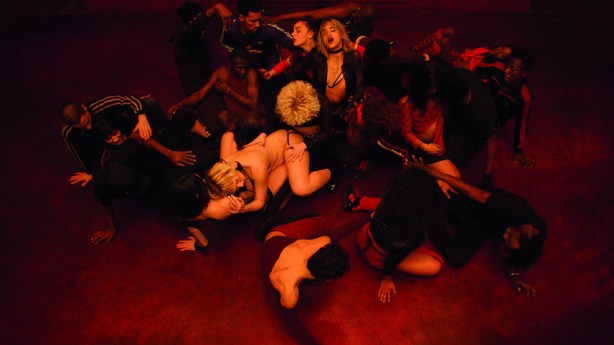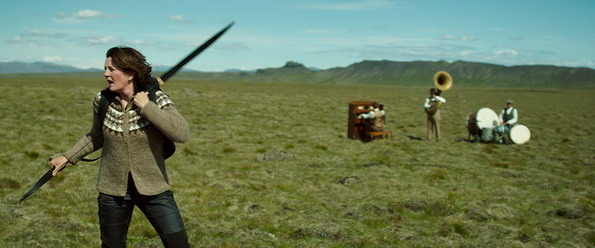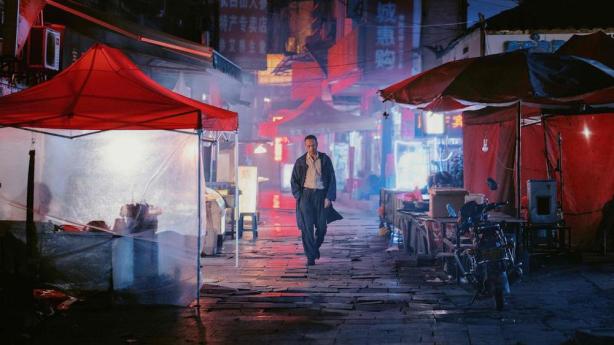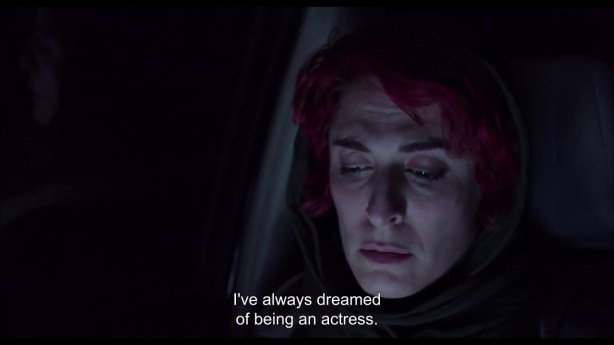 The official selection of projects for National Film Development Corporation’s Film Bazaar Co-Production Market 2018 has been announced. This year, 20 projects have been selected to participate in the Market. After the success of Open Pitch in previous editions, this year again the selected filmmakers will be pitching their projects to a curated audience of national and international producers, financiers and sales agents.
The official selection of projects for National Film Development Corporation’s Film Bazaar Co-Production Market 2018 has been announced. This year, 20 projects have been selected to participate in the Market. After the success of Open Pitch in previous editions, this year again the selected filmmakers will be pitching their projects to a curated audience of national and international producers, financiers and sales agents.
The selected projects for 2018 are –
A Home Far Away | English, Spanish | India, France, USA
Director: Mohsen Makhmalbaf
Mohsen Makhmalbaf is known as one of the most influential filmmakers and founders of the new wave of Iranian cinema in the world. His films like Salam Cinema, A Moment of Innocence, Gabbeh, Kandahar and The President have been widely well received across the globe and have brought him over 50 international awards from the prestigious film festivals like Cannes Film Festival and Venice International Film Festival.
Producer: Sanjay Bhattacharjee, Sitting Duck Pictures
Sanjay Bhattacharjee is a UCLA alumni with 20 years’ production experience and has been a producer on projects like Frozen (Toronto International Film Festival, 2007), Manorama Six Feet Under and Amu (Berlinale Forum and FIPRESCI Critics’ Award, 2005). Sanjay is currently producing an adaptation of Paul Theroux’s novel The Elephanta Suite, co-written by Sooni Taraporevala, starring Brendan Fraser, in partnership with Brillstein Entertainment Partners.
Producer: Mauktik Kulkarni, Mauktik Productions Pvt Ltd
Mauktik Kulkarni has more than 10 years of experience in fund-raising and project management. He has co-produced and executive produced Riding On A Sunbeam, a unique travel film directed by Brahmanand Singh and edited by Irene Dhar Malik, both national award winners. The film A Home Far Away is based on his solo, 8000 km bike trip in South America and the memoir A Ghost of Che authored by him.
Producer: Charlotte Uzu, Les Films d’Ici
Since 2003, Charlotte Uzu has been developing international films for Les Films d’Ici and structures financing with co-producers worldwide. Her filmography as a producer includes projects like- Waltz with Bashir (Ari Folman), Aurélie Dupont (Cédric Klapisch), Louis XV, The Black Sun (Thierry Binisti), An Opera Season (Richard Copans), Marilyn, Last Sessions (Patrick Jeudy), Clint Eastwood, A Life in Film (Michel Henry Wilson), Cerro Bayo (Victoria Galardi), Operation Libertad (Nicolas Wadimoff) and 3000 Nights (Mai Masri)
A New Prophet | Bengali, English | Bangladesh, USA
Director: Rezwan Shahriar Sumit
Sumit’s first docudrama City Life, earned him a place at the Berlinale Talents 2008 as an up-and-coming director. His short films have premiered at Copenhagen International Children’s Film Festival, Sarasota and New York Film Festival; and have been acquired by MUBI, VPRO, ASPiRE TV for worldwide distribution. Sumit’s first feature The Salt in Our Waters was awarded Bangladesh’s National Film Grant, France’s CNC and a writing grant by Spike Lee Film Production. He is also a Cannes-IEFTA Global Film Expression alumni. A New Prophet was awarded with the Sloan Foundation Production Grant in 2017.
Producer: Lilian Mehrel
Lilian Mehrel is a writer, director, and multimedia artist. Her work in immersive storytelling has premiered at Tribeca’s Interactive Playground, Google Daydream: Immersive Films Program and at the Tribeca Immigration Co/Lab: AR narrative exhibit in 2016. She is also a Google Tilt Brush artist. Lillian is also the recipient of awards like IFP Marcie Bloom Fellowship 2016-17, Paul & Daisy Soros Fellowship for New Americans in 2013, Sloan Foundation (The Loneliest, 2017), Nancy Malone Directing Award, 2015 and Kodak Student Film Award nomination.
Amar Colony | Hindi, Punjabi, Bengali | India
Director & Producer: Siddharth Chauhan, Secret Corridor Pictures
Siddharth is an independent filmmaker from Shimla. He founded Secret Corridor Pictures with the aim of working with the local talent in his home town Shimla. He has won the Satyajit Ray Award at London Indian Film Festival for his short film Papa in 2017. His latest short film Pashi premiered at Rhode Island Film Festival and was recently reviewed by Indie Shorts Magazine as the Best Indian Short Film of 2018.
Bend in the Coffin | Sinhalese | Sri Lanka
Director: Ilango Ramanathan
Ilango’s short film Silent Tears has traveled to 27 International Festivals and won 19 Awards and was screened at Locarno Open Doors 2017. A graduate from the Rockport College USA, he has participated in Asian Film Academy and Berlinale Talents. He has directed several social awareness commercials for child abuse, autism, and heart and cancer awareness for organizations like UNICEF. His debut feature Scent of a Dead Body is currently under production.
Producer: Hiranya Perera, Silent Frames Productions (Pvt) Ltd
Hiranya started out as the producer of Good Morning Sri Lanka – MTV. As the youngest woman director-producer, she has directed TV commercials for Stein Studios, while also taking care of the end-to-end production. She started own production house, Silent Frames Productions where she produced her first short film, Silent Tears directed by Ilango Ramanathan. She continues to produce TV commercials and films in Sri Lanka. Her first feature project Scent of a Dead Body is currently under production.
Bichal Sal (Rapture) | Garo | India, China
Director: Dominic Sangma
A graduate from Satyajit Ray Film and Television Institute, India his diploma film titled Rong’Kuchak (Echoes) won the National Student Film Award for Best Short Film in 2014 and Special Mention in Ca ‘Foscari Short Film Festival, Venice 2015. His debut feature film MA•AMA, an Indo-China Production was presented at the Film Bazaar Work-in-Progress Lab 2017 and will premiere at the International Competition section of MAMI Mumbai Film Festival 2018.
Producer: Jiangshang Xu, Anna Films
Jianshang Xu graduated from the Directing Department of Beijing Film Academy, China. Her Diploma short film Void had its world premiere at Busan International Film Festival 2018. MA•AMA was her first international co-production feature with Indian director Dominic Sangma. Rapture is her second feature film.
Currently, she is pursuing course in producing at Busan Asian Film School, Korea.
Fairy Flower Miles | Hindi, Bhojpuri | India
Director: Balaka Ghosh
Balaka Ghosh is a filmmaker based in Kolkata, India. Her film The Vehicle with The Soul Of A Man has traveled to 30 international film festivals. Her documentary Footprints in the Desert, co-produced by NHK Japan and funded by AND-DMZ fund, premiered at Busan International Film Festival 2014. Two of her fiction scripts have been awarded in Asia Pacific Screen Lab, Australia (2014) & Asian Cinema Fund, Korea (The Fog Catchers, 2017). In the past, her projects have received funding from IDFA, AND-DMZ Fund, Doordarshan, IDFA-Bertha fund, Films Division, IGNCA(GoI), NHK Japan, Banff Mountain Culture, and Al Jazeera.
Producer: Kumud Ranjan, Next Story Communication Pvt. Ltd
Kumud Ranjan has been a producer and cinematographer of feature length films produced by NHK Japan, IDFA Bertha fund, Al Jazeera English, BANFF Mountain Culture, BIFF AND-DMZ. In the past, he has worked as a video journalist with multinational television channels. He is producing an experimental short fiction Love in The Time of Acid Rains which was pitched at The Palace Film Festival, Bulgaria.
Girls Will Be Girls | English, Hindi | India
Director: Shuchi Talati
Shuchi Talati is an alumnus of the American Film Institute and recipient of the Women in Film endowment. She just finished story producing the first season of WYATT CENAC’S Problem Areas for HBO on policing in America. Her tenth short film, Mae and Ash was an official selection at the Atlanta Film Festival, Palm Beach International Film Festival, and WAMM Film Festival. She is collaborating with an all-woman team to develop her first feature film, Girls Will Be Girls.
Producer: Richa Chadha, Kamli Pictures
Richa Chadha is an actor, writer, and producer known for her work in films like Anurag Kashyap’s Gangs of Wasseypur (premiered at Director’s Fortnight, Cannes 2012 and won her a Filmfare Critics Award for Best Actress), the anthology film Words with Gods by Mira Nair (Venice International Film Festival, 2014) and Masaan, an Indo-French Co-Production (Un Certain Regard – Cannes Film Festival, 2015). Richa produced her first short film Khoon Aali Chithi in 2017. She is committed to developing content that challenges in the male gaze in media production.
Hangdan | Assamese | India
Director & Producer: Jaicheng Jai Dohutia, Mayamara Production
Jaicheng Dohutia is a filmmaker from Assam, India. He directed and produced his debut feature film Haanduk (The Hidden Corner) which was part of Film Bazaar Work-In-Progress Lab, 2015. The film went on to bag the Jury Grand Prize at 18th MAMI Mumbai Film Festival 2016, Best Feature Film in Moran at 64th National Film Awards 2016, NETPAC Award for Best Asian film at All Light International Film Festival 2017 and Best Film at 7th Assam State Awards 2018.
Hinterland | Hindi | India
Director: Rahil Ahmed Patel
Rahil Ahmed Patel has been the second unit director on Abhishek Chaubey’s upcoming film Sonchiriya and Zoya Akhtar’s Amazon Prime Series Made in Heaven. Having worked with Abhishek Chaubey and Vishal Bhardwaj, his credits as a 1st Assistant Director include films like Dedh Ishqiya (2014), Udta Punjab (2016), Matru ki Bijlee ka Mandola (2013) and 7 Khoon Maaf (2011).
Producer: Abhishek Chaubey, MacGuffin Pictures LLP
Abhishek Chaubey is the co-founder of MacGuffin pictures that has recently produced A Death in the Gunj (2017) and the upcoming Sonchiriya. As a director, he has helmed critically acclaimed films like Udta Punjab (2016), Dedh Ishqiya (2014) and Ishqiya (2010). He was also the creative producer on the film Ek thi Daayan (2013). Abhishek’s writing repertoire includes such acclaimed films as Omkara (2006) for which he won Filmfare Award for Best Dialogue Writing, and Kaminey (2009).
Producer: Honey Trehan, MacGuffin Pictures LLP
Co-founder of MacGuffin Pictures, Honey Trehan is the co-producer of A Death in The Gunj (2017) and upcoming Sonchiriya. He was the creative producer on Talvar (2015) and associate creative producer on Chittagong (2013). His filmography includes such films as Maqbool (2003), Omkara (2006), 7 Khoon Maaf (2011), Talvar (2015) and Udta Punjab (2016).
In the Belly of a Tiger | Hindi | India
Director: Jatla Siddartha
Jatla Siddartha is an alumnus of the Film and Television Institute of India and the Asian Film Academy, Busan. His first short film, The Artist premiered at Busan International Film Festival in 2012 while his debut feature Love and Shukla had its world premiere at Busan International Film Festival 2017. The film traveled to more than 30 festivals worldwide and won NETPAC Award at Jogja-NETPAC Asian Film Festival. He has also been awarded Busan Script Development Fund (Asian Cinema Fund) 2018 for In The Belly of a Tiger.
Producer: Amanda Mooney, Momo Films
Amanda Mooney is an associate creative director and filmmaker based in Mumbai. Her recent work includes Love and Shukla (NETPAC Award, World premiere, Busan International Film Festival), Belongings (2017), and In the Belly of Tiger (Busan Script Development Fund). She is also currently producing and directing a documentary on the DACA generation in post-Trump America, Hermosa Puerta Grande.
Kho – Kho | Malayalam | India
Director & Producer: Rahul Riji Nair, First Print Studios
Rahul Riji Nair founded the production company First Print Studios under which he made his debut feature film as a writer-director, Ottamuri Velicham (Light in the Room). The film won him several state awards including Best Feature Film in 2017 and World Premiered at the New York Indian Film Festival 2018. The film also won the German Star of India Award for Best Feature film at the Indian Film Festival of Stuttgart, 2018. The film also premiered at the India Gold Competition Section of MAMI Mumbai Film Festival 2018.
Little Thomas | Hindi, Konkani, English | India
Director: Kaushal Oza
Kaushal Oza is an alumnus of the Film and Television Institute of India, and has won National Awards for his two short films, Vaishnav Jan Toh and Afterglow. Afterglow was also India’s Official entry to the South-Asian Film Festival of SAARC, where it won the Special Jury Award in 2013. Little Thomas was developed at the NFDC Children’s Screenwriters’ Lab 2016.
Producer: Shaan Vyas, Awe Studios
Shaan Vyas worked as a producer with Sikhya Entertainment and successfully produced films like The Lunchbox, Masaan, Zubaan and Dear Dad, during his tenure there. He recently produced the BFI partnered Indo-British horror Darkness Visible and Aasha the Street Dog with Cinestaan International. His new production outfit Awe Studios, aims to empower filmmakers with a unique voice and vision and take them to the world.
Lonak (The Dark Year) | Hindi | India
Director & Producer: Sange Dorjee Thongdok, TNT Films
Sange Dorjee is an alumnus of Satyajit Ray Film & Television Institution. His debut feature film Crossing Bridges was the first feature film in Sherdukpen dialect of Arunanchal Pradesh. It also won the National Award for Best Feature Film in Sherdukpen in 2013. In 2016, he was selected for the Berlinale Talent Campus. Under his production banner TNT Films, he directed and shot The Nest, a documentary film which won the Best North-East Film award at Woodpecker International film festival. The Nest also won Best Film and Cinematography awards at the 5th National Documentary and Short Film Festival. His second feature film River Song has been produced by Jar Pictures, Mumbai.
Reshma Shera | Hindi | India
Director: Megha Ramaswamy
Megha Ramaswamy’s two films, Newborns (2014) and Bunny (2015), both had their world premieres at TIFF, and traveled to various Indian and international festivals. Her short film The Last Music Store won the audience Best Documentary award at South Asian International Film Festival, USA. She also has her own production banner, Missfit Films. Megha also co-hosts CAUSE EFFECT, a platform that produces cause related content and outreach programs and is a beneficiary of the prestigious Chicken & Egg grant for women filmmakers.
Currently, she is working on the final stages of her debut feature set in her own whimsical version of Mumbai – The Odds.
Producer: Alan McAlex, JAR Pictures
Alan started his journey assisting top cinematographers in the country but soon identified his passion for production. He has line produced critically acclaimed independent films like Frozen (TIFF 2007), Ocean of an Old Man (Busan 2008), Autumn (TIFF 2010), Peepli Live (Sundance 2010) and Patang (Berlinale ’11). He cofounded JAR Pictures, a versatile production company steadily gaining hold in the Indian film industry and produced successful films like Gangs of Wasseypur (Director’s Fortnight, Cannes 2012), Liar’s Dice (Sundance 2014 and India’s official entry to Oscars 2014) and Killa (Berlinale 2014 – Crystal Bear Winner) while helming the line production of cinematic achievements like Dangal and Talvar as an Executive Producer.
Some Little Shreds of Memory | Hindi | India, Germany
Director & Producer: Karan Talwar
Karan Talwar is the co-founder of Harkat Studios, an arts studio based in Mumbai and Berlin. He has directed many short documentary stories and experimental films as part of his work at Harkat. Karan has also curated exhibits like The Museum of Ordinary Objects and In the mood for Melancholia, where he worked with material memory and experiential storytelling. With a multi-disciplinary background, he matches ideas with mediums and his work ranges from conceptual installations to filmmaking. He has assisted filmmaker Prakash Jha on projects like Raajneeti, Satyagraha, Chakravyuh, and Aarakshan.
Producer: Michaela Talwar, Harkat Studios U.G.
Michaela Strobel is a producer, journalist, filmmaker, marketing consultant and co-founder of Harkat Studios. She has worked as an international correspondent for ZDF in Brussels and concept developer and strategist for public and private TV channels. She has produced a variety of original and marketing content for companies like Netflix, Fox Star Studios and Disney.
Swan Song | English, Hindi, Black Mountain Monpa, Dzongkha or Bhutanese | India, Bhutan
Director: Vandana Kataria
Vandana Kataria graduated from the National Institute of Design and went on to direct numerous commercials, music videos, and corporate films. She has worked as a Production Designer on feature films like Detective Byomkesh Bakshy (2015), Shanghai (2012), and Oye Lucky! Lucky Oye! (2008). In 2016, she was selected for the Berlinale Talent Campus. She made her debut as a writer and director with Noblemen produced by Saregama India Limited. Presently, she is engaged in the pre-production of her next film with RSVP.
Producer: Milan Agarwal, Tulsea
Milan Agarwal is the content development and strategist at Tulsea, which is a strategic talent and content management company. Tulsea has produced films like Sulemani Keeda (2014) and a national award winning short film Tamaash (2013). The company also has an unparalleled roster of filmmaking talents, including writers like Juhi Chaturvedi (October, Piku, Vicky Donor), Sudip Sharma (Udta Punjab, NH-10), Akshat Verma (Kaalakaandi, Delhi Belly), and Varun Grover (Masaan, Sacred Games) to directors like Vikramaditya Motwane (Trapped, Udaan, Lootera, Sacred Games), Navdeep Singh (NH-10), and Alankrita Shrivastava (Lipstick Under My Burkha).
Tito-Mitho (Bitter-Sweet) | Nepali | India
Director: Tribeny Rai
Tribeny Rai is an independent filmmaker from Sikkim, India. An alumnus of Satyajit Ray film and Television Institute, she has worked with Prasar Bharati, Doordarshan Kendra Gangtok on a series of documentary films based on women empowerment. Her debut short film Yathawat (As It Is) premiered at the International Film Festival of India 2015 (Goa), Kathmandu International Mountain Film Festival (KIMFF), and Kolkata International
Film Festival. Her experimental film For Children Only won the Best Sound Design award at National Student Film Awards 2015. In 2015, she was selected as a film fellow for Dharamshala International Film Festival Fellowship Programme and in 2016, she attended the 8th VGIK International Summer School held in Russia as the only Indian representative.
Producer- Geeta Rai, Dalley Khorsani Productions
Geeta Rai is a school teacher by profession and a film enthusiast by choice. She is actively involved in social works aiming to empower women of villages financially and socially. She has produced three films namely-Memory of A Heart (screened at 13th IAWRT Asian Women Film Festival under the Artists’ Film and Video section), Daughter, and Sikkim Soccer Girls all directed by Tribeny Rai.
Three Mothers | Tamil, French | India, France
Director: Chezhiyan Ramalingam
Chezhiyan Ramalingam is a filmmaker and cinematographer who primarily works in the Tamil film industry. He won the Best Cinematography Award at London International Filmmaker Festival (LIFF) for the film Vagabond (Paradesi) in 2013. His debut feature film To Let won Best Indian film award in Kolkata International film festival and National Award for Best Regional film. He is also an acclaimed author of a series of books about cinema titled Ulaga Cinema (World Cinema) in Tamil.
Producer: Prema Chezhiyan, La cinema
Prema Chezhiyan is a professional music scholar, teacher and book publisher. After completing her higher studies from Trinity London Music College, she published ten volumes of books about Western Music theory in Tamil. The books got best publisher award from Ananda Vikatan 2011. Her first movie as a producer, To Let got her the National Award for Best Feature Film in Tamil.
Ullozhukku (Undercurrent) | Malayalam | India
Director: Christo Tomy
Christo Tomy, an alumnus of Satyajit Ray Film and Television Institute, India is an independent filmmaker from Kerala, India. His short films Kamuki (Sweetheart) and Kanyaka (Virgin) won him National Awards for Best Direction (2016) and Best Debut Film (2014), respectively. He was selected for the 9th International Students Film Camp in Serbia, and the documentary he made there titled Apart, was listed as the second best work in the TV Story category at INTERFER – International Media Festival, Apatin, Serbia (2015). Undercurrent was also a part of the NFDC Screenwriters’ Lab, 2017.
Producer: Geetu Mohandas, Collective Phase One
Geetu Mohandas’s debut short film Are you listening? premiered at International Film Festival Rotterdam 2010. Her debut feature film Liar’s Dice, premiered in competition section at the Sundance Film Festival 2013 and was India’s official entry for the 87th Academy Awards. The film also won Best Actress and Best Cinematography awards at the 61st National Awards. She is an integral part of Collective Phase One, which was formed to create an alternative path in filmmaking. They have produced many acclaimed films like Rajeev Ravi’s Njan Steve Lopez, Kamal K. M’s I.D., among many others.
VR Peon | Hindi | India
Director: Kabir Mehta
Kabir Mehta’s first film a docu-fiction short film Sadhu In Bombay had its North American premiere at Slamdance Film Festival and won the award for Best Narrative Film at the 55th Ann Arbor Film Festival. His first feature length project BUDDHA.mov, a docu-fiction hybrid, had its world premiere at Tallinn Black Nights Film Festival 2017 in the First Features Competition and will have its Indian premiere at MAMI Mumbai Film Festival 2018.
Producer: Homi Adajania, Maddock Films
Homi Adajania is a writer and Indian film director of critically and commercially successful films like Being Cyrus, Cocktail, and Finding Fanny. Maddock Films, founded by Dinesh Vijan, is one of the prominent production houses in the Indian Film Industry with a wide slate of films including Love Aaj Kal, Cocktail, Badlapur, Hindi Medium and Stree recently. The core belief at Maddock is to make films which are both heavy on content as well as commercially viable and entertaining films. With an interesting slate of upcoming films, Maddock Films plans to continue creating memorable and exciting films for Indian & International audiences.






 The official selection of projects for
The official selection of projects for 










